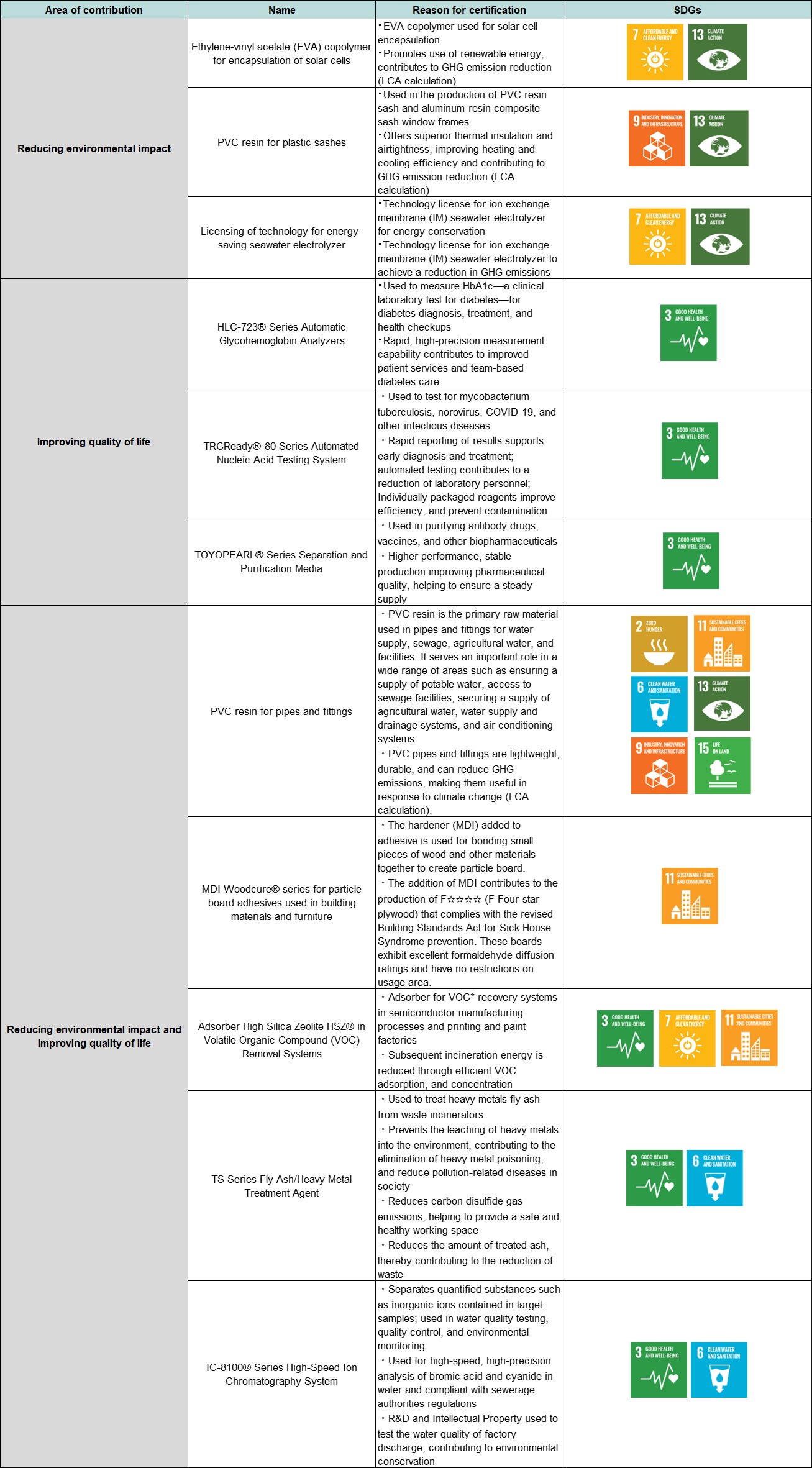Progress on Important CSR Issues
The Tosoh Group has identified important CSR issues that it will proactively address based on evaluating the importance of these issues both inside and outside the Group. Based on the awareness that these business activities are oriented toward resolving these issues we believe will lead to society’s sustainable development and Tosoh Group’s sustainable growth. To achieve this, we have positioned CSR activities at the core of our management structure and are making a groupwide effort to resolve these issues.
Steps in Identifying Important CSR Issues and KPIs
Step 1: Selection of Key Issue Candidates
Considering international guidelines ISO 260001 and GRI Standards,2 as well as the demands of society toward contributing to a sustainable society as well as the Tosoh Group’s sustainable growth plan, we identified several candidates as important issues that could be considered both risks and opportunities.
1 ISO: International Organization for Standardization
2 Framework for sustainability reporting by the Global Reporting Initiative, an international nongovernmental organization
Step 2: Assessing the Importance of Key Issue Candidates
We conducted a quantitative materiality assessment of potential critical internal and external* issues, while considering their impact on society’s sustainable development, as well as Tosoh Group’s sustainable growth plan.
*3 External evaluation: External directors, four investment institutions, CSR consultants, non-profit corporations, and others
Step 3: Identification of Key Issues
In addition to the importance assessment, we have also identified nine important issues based on the ideas in 1 to 3 below in consideration of the results of CSR activities through FY2022 and society's expectations of the Tosoh Group.
1). Issues of high importance for both the impact on society’s sustainable development and the Tosoh Group’s sustainable growth plan
2). Issues of high importance in terms of impact on society’s sustainable development
3). Issues in which the Tosoh Group has been actively involved
Important CSR Issues (FY2023–2025)
- Creation and offering of products and technologies that solve societal issues
- Addressing climate change issue
- Strengthening environmental preservation activities
- Achieving safe, stable operations
- Product safety and quality management
- Diversity and inclusion
- Reinforcing CSR supply chain management
- Strengthening compliance
- Respect for human rights
Step 4: Identifying KPIs
To resolve the nine issues identified, we have established 24 KPIs that will lead to earning and maintaining stakeholder trust and achieving the sustainable growth of the Tosoh Group.
Approval
Deliberation by the CSR Committee and Board of Directors
Key CSR Issues and KPIs for FY2023 - FY2025
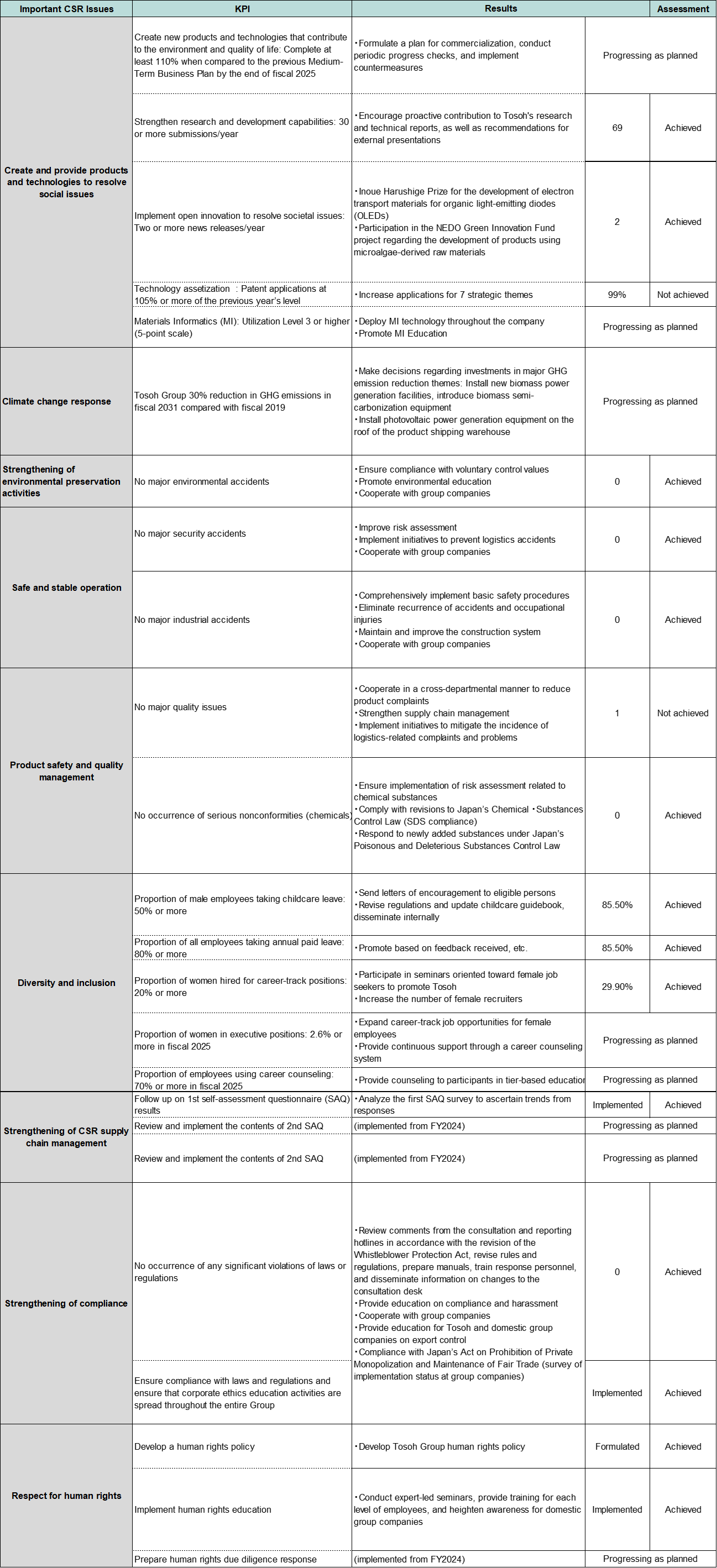
Social Issues Solution
As stated in its corporate philosophy, “We at Tosoh constantly strive to contribute to society through the chemistry of innovation.” To follow this philosophy, the Tosoh Group focuses on achieving sustainable growth by developing businesses that contribute to resolving social issues, while continuing to be a company that is trusted by all stakeholders and valued in society. We consider the Sustainable Development Goals, or SDGs, adopted by the United Nations as fundamental guiding principles and believe that our mission is to manufacture products beneficial to society, thereby contributing to achieving a sustainable society. Based on this belief, the Tosoh Group has certified its products, technologies, and services that all contribute to solving social issues, such as reducing environmental impact and improving quality of life, as Social Issues Solution and the Group are promoting the development and diffusion of these solutions.
Certification Requirements
The requirements for certification as Social Issues Solution are “contribution to solving social issues” and “contribution to enhancement of corporate value and sustainable growth.” For the former, Tosoh uses 169 targets, which are the specific goals aligned with the 17 SDGs, as certification requirements. These targets serve as essential guiding principles for the company’s contribution to resolving social issues. In the case of the latter, Tosoh regards Social Issues Solution as not only about solving social issues, but also about contributing to enhancing corporate value and sustainable growth. Given this, its requirement for certification is that the company continues to contribute to achieving the required SDGs by continuing to operate the businesses related to those products it has launched.
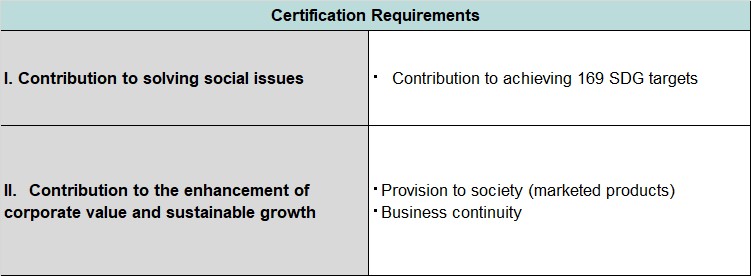
Certification Procedure
The CSR Promotion Liaison Meeting discusses products proposed by business units, complexes and operating companies and subsequently submits its successful proposals to the CSR Committee and the Board of Directors for approval.

Introduction of Certified Products
Tosoh's Social Issues Solution constitutes products and technologies that reduce environmental impact and improve quality of life. The 14 products and technologies recognized in the first round of Social Issues Solution contribute to solving eight social issues related to reducing environmental impact and three issues related to improving quality of life.
Social Issues Targeted by Certified Products
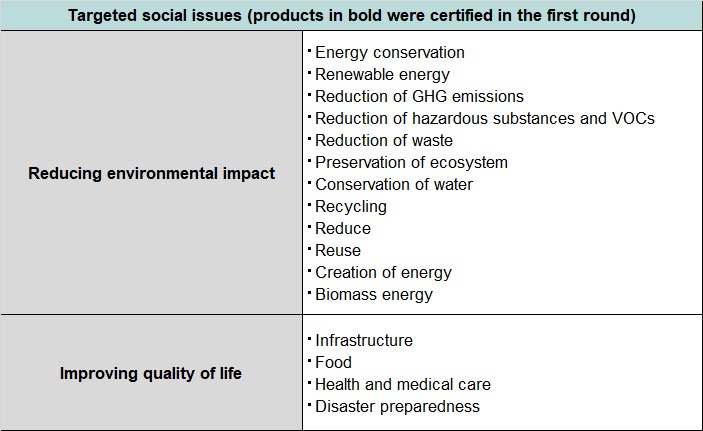
Representative Examples of Solutions Certified in the First Round
Reducing GHG emissions through the use of methylene diphenyl diisocyanate (MDI) in building insulation
Methylene diphenyl diisocyanate (MDI) for building insulation is the primary raw material used in the production of polyurethane foam used for building insulation. Improving the thermal insulation of buildings enhances the energy-saving effect related to electricity use for heating and cooling, thereby contributing to reduced GHG emissions. By maintaining and expanding the scale of our business through plans to increase capacity, we will bolster our contribution to mitigating any environmental impact. Moreover, Tosoh’s MDI for building insulation features superior thermal insulation properties compared with other foamed plastic insulation materials, contributing to significant energy savings. And it is possible through LCA* calculations to reduce CO2 emissions by only using a small amount of polyurethane foam. This action is expected to impact global warming and other environmental issues positively.
*Life Cycle Assessment (A quantitative evaluation of environmental impact)
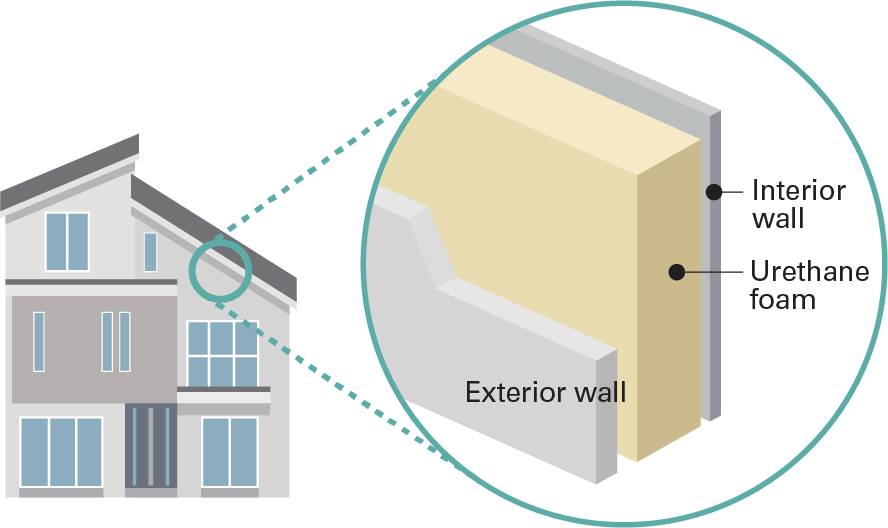
AIA®-CL series fully automated chemiluminescent enzyme immunoassay analyzers and AIA series automated enzyme immunoassay analyzers for health and medicine
These systems are used to test for non-infectious diseases such as cancer, thyroid, gynecological, and cardiac diseases, as well as COVID-19, hepatitis B, and other infectious diseases. Rapid reporting facilitates early diagnosis and treatment, which supports health maintenance and disease risk reduction for many people around the world. Therefore, Tosoh plans to expand its lineup of measurement items and develop and commercialize proprietary biomarkers to enhance the company’s contribution to improving quality of life. Tosoh’s AIA-CL and AIA series systems feature the capability to report results within 15 minutes—with some exceptions—after the start of measurement. The AIA-CL series also employs DIFURAT, a new, proprietary chemiluminescent substrate with high luminescent efficiency and stability, to achieve high-precision, high-sensitivity measurements and reduce the number of specimens required for testing. Compared with the AIA series, the AIA-CL series requires a smaller number of samples, which reduces the burden of acquiring blood samples from children and seniors.
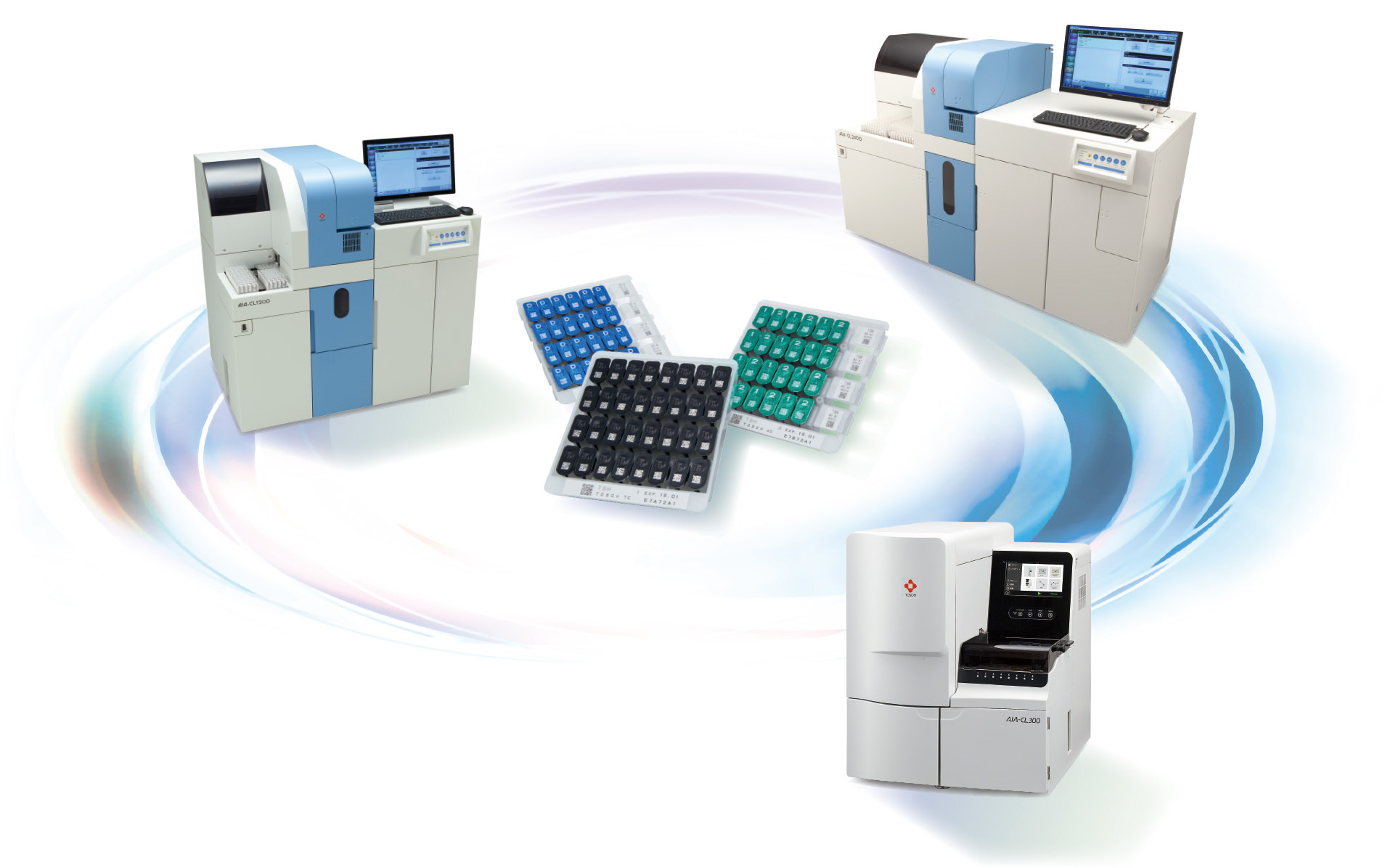
HSZ® Series High-silica zeolite catalyst for automotive exhaust gas purification reduces hazardous substances, thereby contributing to improved health
HSZ® Series High-silica zeolite is used as a catalyst material in diesel engine exhaust gas purification systems. As a catalyst material that supports the restoration of nitrogen oxide (NOx) to nitrogen and the oxidation of unburned hydrocarbons (HC)—harmful substances in exhaust gases—the HSZ Series contributes to purifying and detoxifying automotive exhaust gases. In terms of contributing to the reduction of hazardous substances, Tosoh is also employing the LIME method* to quantitatively evaluate the company’s contribution to environmental impact reduction.
With numerous countries planning to enact stricter exhaust gas regulations, the need for stable, hazardous substance purification is growing in all environments. By providing a steady supply of high-performance zeolite, Tosoh will contribute to reducing any negative environmental impact.
* LIME: Life Cycle Impact Assessment Method based on Endpoint Modeling. A method of life cycle assessment, this is a Japanese version of a damage calculation-type method for gauging environmental impact. It calculates the degree of damage that production and other activities inflict on areas such as human health and biodiversity and comprehensively ascertains multiple ecological impacts.
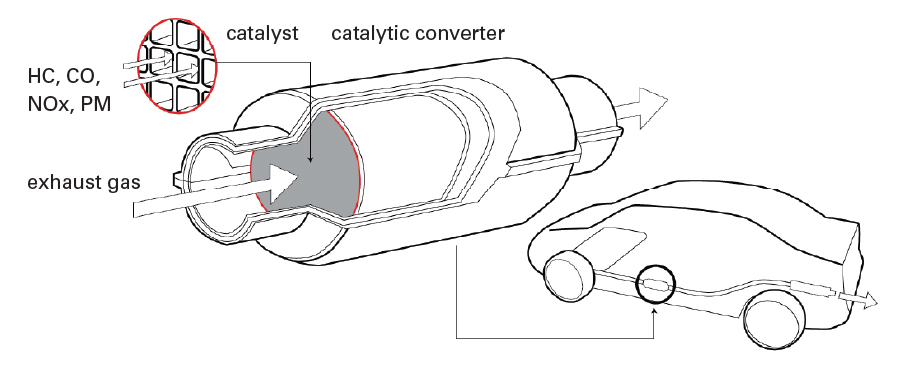
Solutions Certified in First Round
